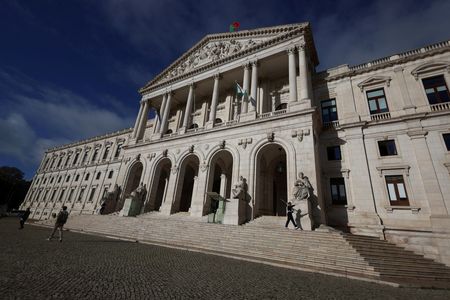LISBON (Reuters) -Portugal’s Constitutional Court has blocked a bill approved by the right-wing parliamentary majority that was designed to limit the inflow of immigrants, citing obstacles it creates for family members in joining immigrants legally resident in Portugal.
Immediately after late Friday’s decision, President Marcelo Rebelo de Sousa sent the bill back to parliament, which is on recess until September. Last month, the president told the court to check the document for potential infringements of the principles of equality, proportionality and legal security.
The bill illustrates the rightward shift in politics in much of Europe, as governments try to fend off the rise of the far-right by being tougher on immigration.
The bill would have made hundreds of thousands of migrants legally resident in Portugal wait for two years before they could request permission for immediate family members to join them. Only highly-skilled workers and investors with special residence permits would be exempt.
The court ruled that the bill was “likely to lead to the separation of family members” of foreign citizens legally resident in Portugal, which it said would be a “violation of the rights enshrined in the constitution”.
Last year, the government scrapped a programme that allowed migrants entering Portugal on a tourist visa or waiver to stay and get residence permits if they find work.
Immigrants from the Community of Portuguese Language Countries still enjoy most such privileges but the bill would impose the requirement of a long-term work or residence visa that they would need to apply for in the country of origin.
Parliament approved the bill on July 16 with support from the centre-right ruling coalition and far-right Chega party, which emerged as the second-largest parliamentary force in a May general election.
Left-wing opposition parties have criticised the government for what they call an inhumane bill, and for allowing Chega to impose its anti-immigration agenda on the minority administration.
The government denies such accusations, arguing that immigration inflows require better controls, and has already said it intends to adjust the bill to the court’s objections.
(Reporting by Andrei KhalipEditing by Mark Potter)











